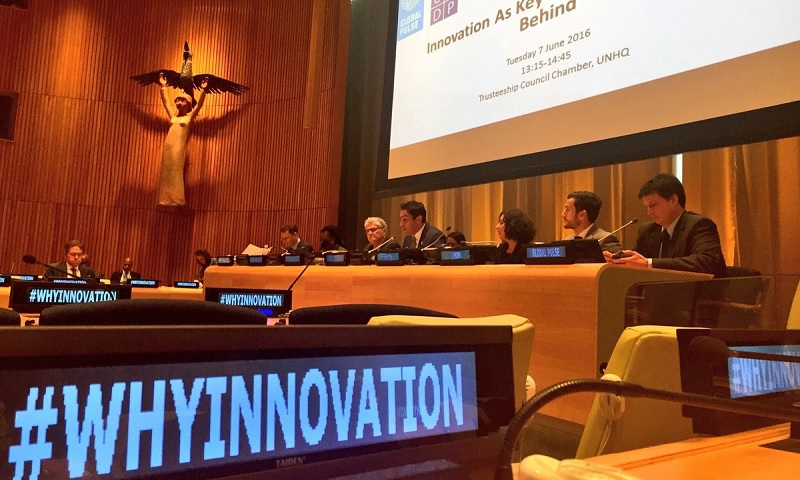
Delivering on the 2030 Sustainable Development Agenda needs innovation to overcome the challenges of implementing the Sustainable Agenda Goals (SDGs), but what exactly is “innovation?” At an event on Innovation as Key to Leaving No One Behind held 7 June at United Nations Headquarters in New York, organised by the Permanent Mission of Demark to the UN, a panel of representatives from several UN funds and agencies spoke about what “innovation” means and how it can be leveraged to meet the SDGs.
The UN Secretary-General’s Envoy on Youth, Ahmad Alhendawi, moderated the event and asked representatives from UN Development Programme (UNDP), UN Women, UN Population Fund (UNFPA), the World Food Programme (WFP), UN Emergency Children’s Fund (UNICEF) and UN Global Pulse about their ideas on innovation and what that means for social development.
For the panelists, innovation means solutions that add value, creativity and entrepreneurship. It also means risk taking, which is an aspect of innovation that UN funds and programmes need to consider. Innovation can also mean using Big Data to identify and meet the needs of communities. To leave no one behind, the proliferation of Information and Communications Technology (ICT) also offers innovative solutions for reaching all communities, including all people and “leaving no one behind.”
But innovation also comes with its own sets of challenges. Mitigating risks, fragmented data, Big Data security and access to ICT devices and infrastructure are all issues that can impede innovation as key to achieving the SDGs. But these technical challenges are not impossible to overcome. In his opening remarks at the event, President of the General Assembly H.E. Mogens Lykketoft spoke about the need for innovation in thinking and how changing ideas can deliver on the SDGs alongside tech and entrepreneurship. Furthermore, he asked how the UN, Member States, Civil Society and the private sector should cooperate on innovation.
An example of challenges to innovation in an agricultural micro-insurance scheme was shared by Richard Choularton, Chief of the WFP’s Climate and Disaster Risk Reduction Programmes Unit. Farmers in low-income countries generally approved of a micro-insurance scheme that helped to protect their crops, however, most found they did not have enough income to pay into the programmes. One farmer in the programme, however, came up with an innovative solution: instead of paying into the scheme, farmers could work in exchange for access to insurance. By listening to people on the ground, the WFP was able to deliver an innovative solution that could effectively improve lives and the value of the programme, while including their voices at the table. Innovations in technical cooperation, Big Data and ICTs also need creative thinking to achieve the SDGs.
To follow the conversation on innovation, follow the hashtag #WhyInnovation on social media.
Source & Copyright: UNDESA
 Welcome to the United Nations
Welcome to the United Nations